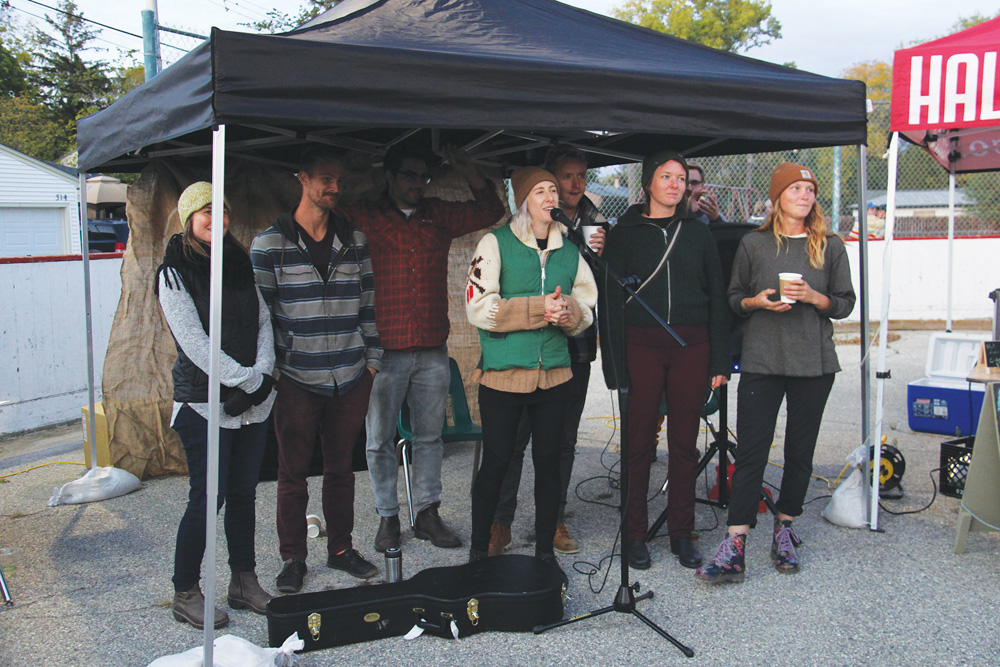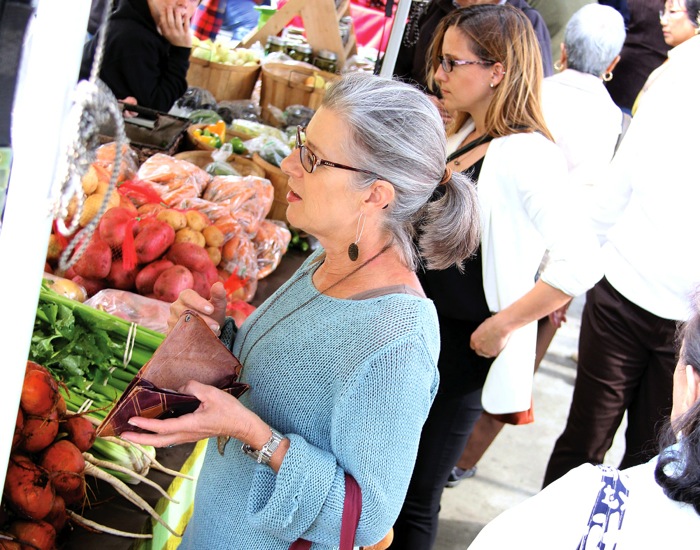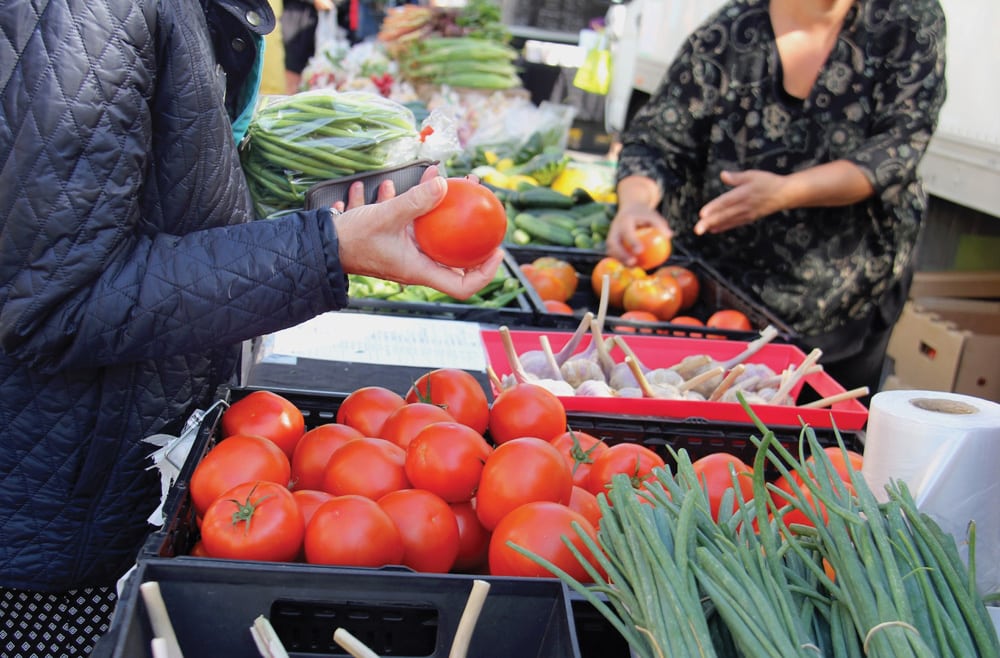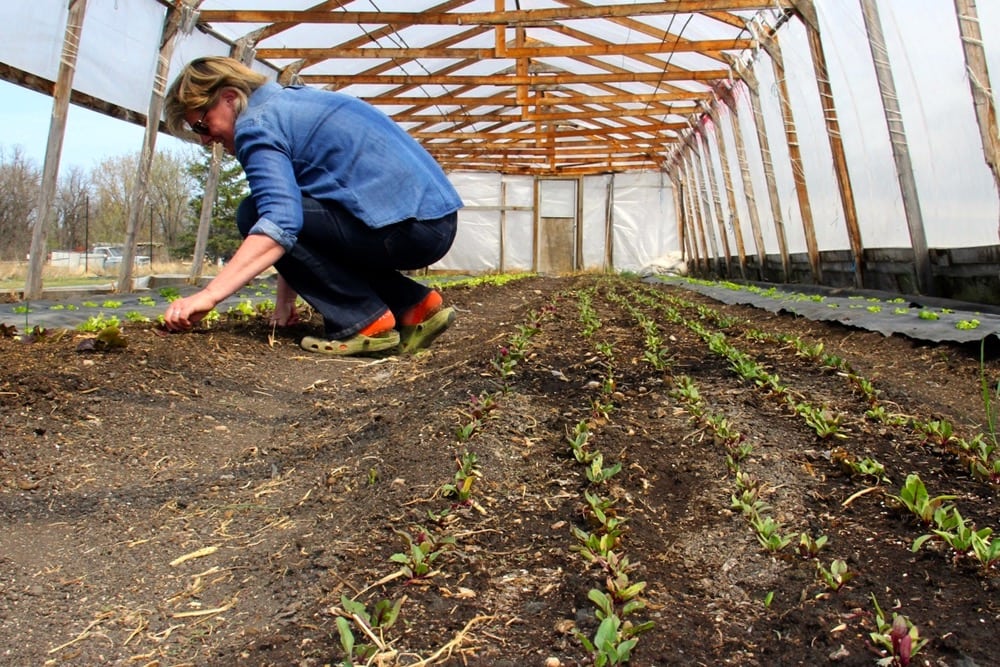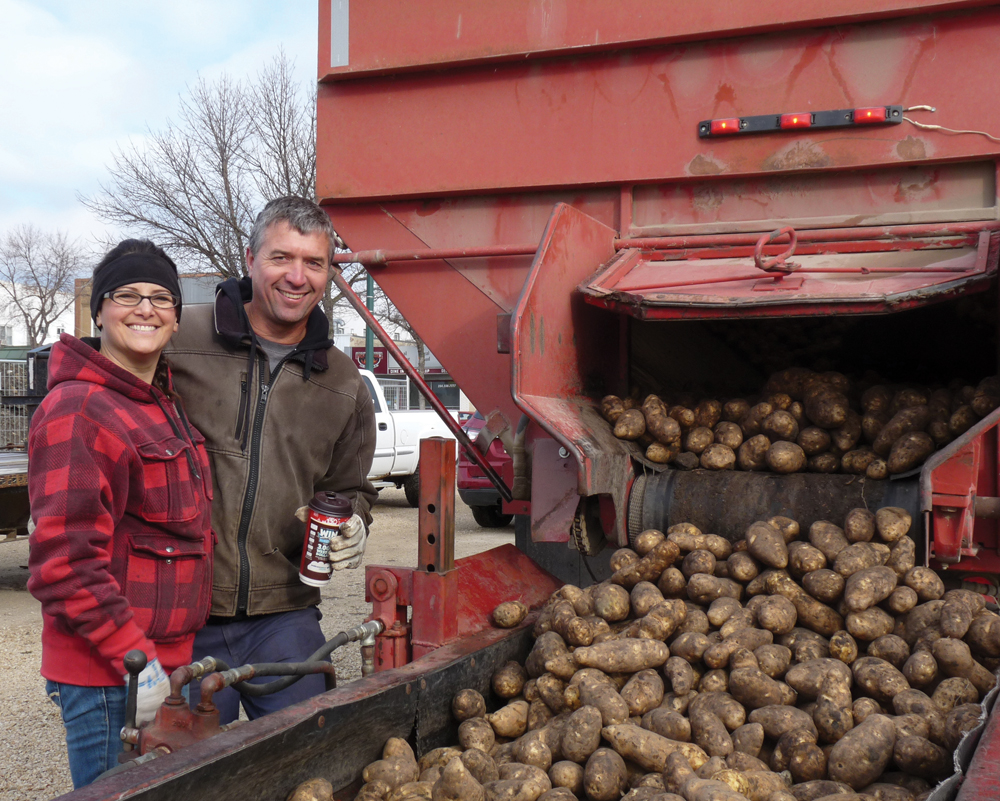Another Manitoba vegetable grower is claiming Peak of the Market rejects too much produce, which costs growers and wastes food.
Idzerd Boersma of S. B. Vegetable Growers near Portage la Prairie has joined Jeffries Brothers Vegetable Growers in calling on Peak to allow farmers to sell their own produce if Peak won’t. And it appears provincial government regulations allow it.
Two years ago, Peak of the Market rejected a lot of Boersma’s cooking onions because they had some green colour after lying in the sun post-harvest. However, Boersma said he was able to find markets for the onions outside Manitoba. Peak, which has a statutory marketing monopoly over commercially grown Manitoba onions, fined him for doing so.
Read Also

Waving Canadian flag not enough to keep rural business afloat
Buying Canadian won’t help save the rural small businesses that help keep farm communities vibrant; it needs to also be “Buy Local.”
“I lost $150,000 because of what I had to dump because of higher grade-out and stuff that was just plain rejected,” Boersma said in an interview Aug. 19.
Peak of the Market isn’t trying hard enough to market growers’ produce, according to Boersma.
“They’re working more for the buyers than the seller,” he said. “They’re order takers…
“They’ve put their standards so high they sometimes don’t have a sale and they don’t look for it very hard.”
If Peak won’t sell regulated produce then it should allow farmers to, Boersma said.
“Upper management needs to go,” he added.
The complaint is similar to that of Jeffries Brothers of Portage la Prairie. As reported in last week’s Manitoba Co-operator Dave Jeffries said Peak rejected more than half their carrots in 2014 even though, according to Jeffries, they were food quality.
Larry McIntosh, Peak of the Market’s president and chief executive officer, says Peak’s hands are tied.
“If you look at our regulations, our obligation is not to sell anything that doesn’t meet standards, which is Canada No. 1 and Canada No. 2 in the case of onions,” he said in an interview Aug. 21. “However, we will try to find them a sale in processing or anywhere we can.”
Peak of the Market, also known as the Manitoba Vegetable Producers Marketing Board, was created through legislation in 1942 to help growers get fair prices through orderly marketing. Manitoba farmers who grow more than one acre of carrots, table potatoes, cooking onions, parsnips and rutabagas, must have a production quota from Peak to do so. And all the production must be sold through Peak. Returns to farmers are pooled.
The crops can’t be marketed unless they have been graded and inspected as required by Canada Agricultural Products Standards Act and are packed and marked under that act, an official with Manitoba Agriculture, Food and Rural Development, said in an email.
“There is the proviso that Peak is not required to market a root crop which does not meet grade specifications set out in Peak’s Quality Control Manual,” the official wrote.
However, exemptions are allowed, the email adds.
“Specifically, Peak may exempt any quality of root crops from the requirements of the regulations and may authorize a person to market root crops on a temporary basis on terms Peak specifies.”
Peak did find some markets in Ontario for Boersma, but he turned them down because “he wasn’t happy with the price,” McIntosh said.
Farmers displeased with Peak’s management can make their case to the nine-member board of directors — vegetable growers, elected by vegetable growers — which oversees Peak, McIntosh said.
If they don’t like the board’s decision they can appeal to the Manitoba Farm Products Marketing Council, which oversees Manitoba’s marketing boards, he added.
“I appreciate every grower wants to sell everything they grow,” McIntosh said. “We totally understand that and we do our best to accommodate that and get the best return for the growers. That’s why we’re here.”
The number of vegetable farmers in Manitoba has dropped from to 15 or 20 from 70 and Boersma blames Peak.
“The small guys have really been pushed out,” he said. “The root crop side… seems to be a big headache for their management and staff. They’d rather do the red potatoes with eight farmers. We look at these root crops and feel they’re not really getting fair treatment. Nobody is being encouraged to grow these crops. If you’re in and have a contract like I do, OK, we’re rolling along. But for a new guy to start something or have initiative it’s just not in the cards.”
More vegetable production would reduce Peak’s per-unit overhead cost, Boersma said.
The number of all farms has been declining for years, McIntosh countered.
Peak has had record sales the last 21 years, its website says.
“These record-breaking sales were accomplished by obtaining sales in markets across North America including California, Florida, Texas and Washington,” the site says. “These areas also produce a large supply of vegetables but they recognize the quality and taste difference that Peak of the Market vegetables provide.”
Instead of hurting small growers Peak helps them with things such as food safety as well as marketing, McIntosh said.
“I think that benefits smaller growers and medium-size growers more than large growers, because the large ones hire their own staff to do that,” he said.








